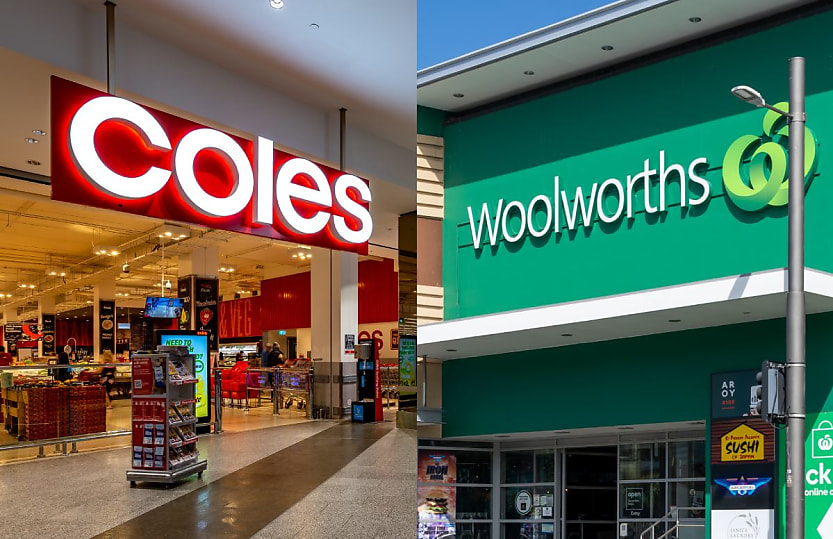Woolworths CEO’s profitability ignorance is ‘laughable’, academic says

Outgoing chief executive Brad Banducci’s “cherry-picking” of financial data was an attempt to obfuscate from the company’s price gouging efforts, senator says.
Australia’s supermarket giants have been accused of “making off like bandits” at the expense of customers, producers, and workers at an ongoing Senate inquiry into the profitability of the sector.
Greens Senator Nick McKim accused outgoing Woolworths CEO, Brad Banducci of “cherry-picking” the company’s financial data, claiming the company’s return-on-equity (ROE) last financial year was more than 2.5 times greater than Australia’s largest banks.
Return on equity (ROE) is a measure of profitability that compares a company’s net profits with the capital invested by shareholders. It is calculated by dividing profits by shareholder equity.
Banducci repeatedly refused to engage with the Senator’s requests to confirm Woolworth’s ROE, insisting it favoured other profitability metrics.
In an article shared with Accountants Daily, professor Reza Monem of Griffith University said the idea that Banducci would not know his company’s ROE is “laughable.”
“While [Banducci] was comfortable reporting the return on assets which was around 10 per cent, he said he did not know what the [ROE] was … [ROE] is not a foreign concept in corporate performance measurement,” he explained.
Monem said Banducci might have been keeping quiet on the measure since the company’s ROE was “shockingly too high” at 25.76 per cent in 2023.
This would mean that, for every $100 of shareholder equity, the company earned a net profit of $25.72 or, on an alternative return on assets basis, $26.09.
Senator McKim accused Banducci of obfuscating the company’s true profitability to silence claims it had engaged in price gouging and uncompetitive behaviour.
“I put it to you the reason you don’t want to focus on ROE is because you don’t like the story that it’s telling which is that you are basically profiteering and making off with massive profits at the expense of farmers, at the expense of your workers, and at the expense of Australian shoppers who you are price gouging,” Senator McKim told Banducci.
Others defended Banducci’s position, claiming ROE is a poor metric for ongoing financial performance and quite outside the usual considerations of a chief executive.
Mark LaMonica wrote that the metric is typically used to estimate the amount of money shareholders could claim if the company decided to turn off the lights. He added this is “a normally unrealistic step [and this] might have crossed Banducci’s mind during the hearing.”
Coles chief executive Leah Weckert, who took the floor shortly after Banducci, explained that ROE is a backwards-looking metric in that it compares profits with often long-ago obtained assets and liabilities.
“I would highlight that equity is a historical number, so it is quite difficult to compare [ROE] across the business,” she said.
Banducci said it was more useful to compare net profits with invested capital, referred to as the return on invested capital (ROIC).
It measures the efficiency of capital investments by calculating how much bang (returns) a company is getting for its buck (invested capital).
On these metrics, Woolworth’s profitability last year would have sat at around 10 per cent, while Coles posted roughly 15 per cent.
“It is not surprising that Banducci is focused on this measure since this is what a CEO does on days that don’t involve senate testimony,” said LaMonica.
“Above all else, a CEO is responsible for allocating capital in profitable ways to generate returns for shareholders.”
Senator McKim has been a staunch advocate for divestiture powers to be granted to the ACCC, which would facilitate the breaking up of large corporates in the interests of economic dynamism and competition.
Last month, the Greens introduced a bill to parliament that would give the watchdog just that power.
In his second reading speech, Senator McKim claimed the idea was not as radical as many considered it to be.
“The competition agencies of Ireland, Italy, and the Netherlands have all recently used divestiture powers to require the divestment of supermarket assets in their countries,” he said.
While Labor has expressed disapproval of the power, opposition leader Peter Dutton has given his in-principle support for the reform despite internal party friction.
The supermarket giants have found themselves at the centre of repeated calls for greater safeguards for economic competition.
The inquiry has resurfaced many similar allegations made in the ACCC’s 2008 inquiry into the sector, which found Australia’s food prices had outpaced inflation at a rate well above other OECD nations.
While that inquiry found the sector was “workably competitive,” it did identify a range of potentially anti-competitive elements including high barriers to entry and expansion, a lack of incentives for Coles and Woolworths to compete on prices, and a lack of competition from the independent sector.
Together, Coles and Woolworths control 65 per cent of the country’s grocery sector and have been accused of increasing prices despite ongoing cost-of-living challenges.
Both companies have refuted claims of price gouging, claiming their recent price increases stemmed from rising operational costs.






